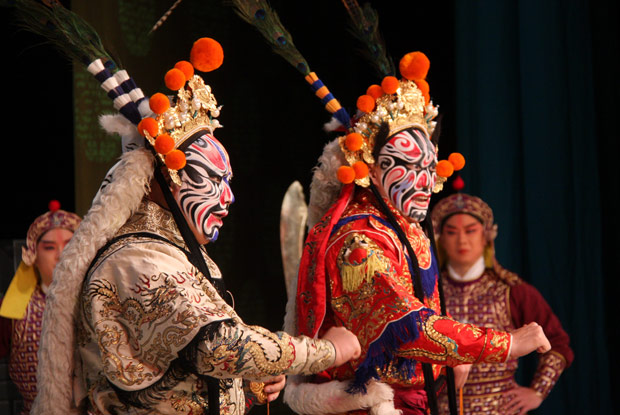
© China National Peking Opera Company. (Click image for larger version)
China National Peking Opera Company
The Legend of the White Snake, The General & The Prime Minister
★★★★★
London, Peacock Theatre
14/15 October 2016
www.cnpoc.cn
Part of Sadler’s Wells Out of Asia 2 season
www.sadlerswells.com
The city that is now commonly known as Beijing has had many other names: just a quick trawl of Wikipedia reveals at least twenty titles throughout the Imperial dynasties – and comparatively recent communist rule – of the past two Millennia. No-one uses Peking anymore to describe the Northern Capital of China but this western, romanticised spelling – created in the 17th century by French Missionaries – has survived to describe a breed of dog (Pekingese), a culinary speciality (Peking Duck) and is just about hanging on – in the west – to identify the purest essence of Chinese culture (Peking Opera). The Chinese, however, prefer the proper term, Jingju, or perhaps to be more stylistically appropriate to the “school” represented in these performances, Beijing Jingju.
Jingju is a complex and unique art form, which sub-divides into several genres, each of which blends performances – invariably with a highly moralistic outcome – from mime, dance (or, perhaps, more accurately, stylised movement), acrobatics, juggling, music and song, drama, comedy, poetry and martial arts. Performers train for years in all these disciplines but are then rigidly typecast into one of four types of role and rarely does any artist cross these boundaries. If trained to be a Chou, for example, a male clown signified by a patch of white make-up surrounding the eyes and nose, then you will always be a Chou!
Jingju is also an acquired taste. Western audiences may initially struggle with the strange-sounding, codified music, always led by the drummers with their heavy, dominant clicking noises; and the rigid style of song, with lyrics delivered in precise stanzas of 5, or 7, characters, often sung falsetto. Notably, it is the virtuosity of the voices – all of which are pure in tone, often with significant ranges – that draws the most appreciation from a Chinese audience. The audience itself is not shy to vent praise during the performance with many guttural grunts of “Hao” – literally “good” in Mandarin – as a sort of Chinese “Bravo”, invariably shouted by men.
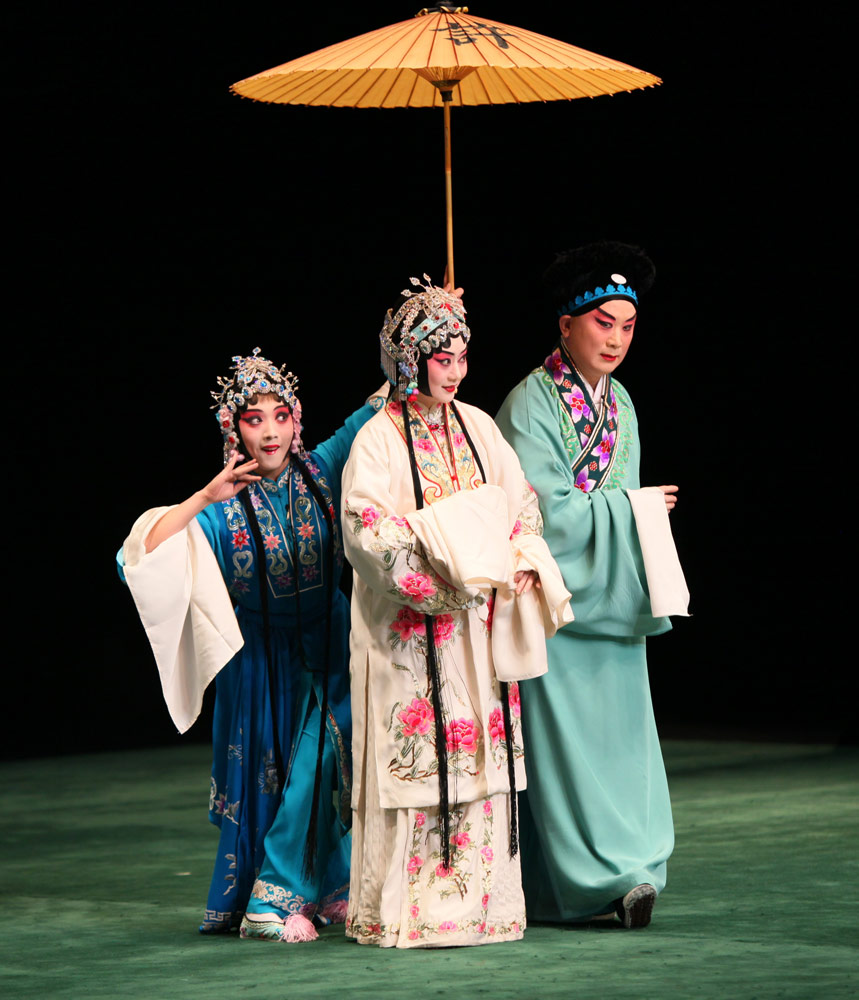
© China National Peking Opera Company. (Click image for larger version
Once acquired, however, one is truly bitten by the bug, or perhaps, more aptly, by the Pekingese. It’s a “Eureka” moment never to be forgotten and, in these two performances, London experienced the best of the very best. Li Shengsu is the head of Group One of the China National Peking Opera and still a legendary performer (she seems a Jingju equivalent of our own Tamara Rojo, in terms of running a company while still performing at the height of her ability).
Shengsu is a protégé of the Jingju Master, Mei Baojiu, whom I had the great privilege of meeting, last year; who sadly passed away in April. Mei Baojiu was a son of the greatest nandan performer (men playing female roles). His Mei school (or style) of Jingju is characterised as ‘calm, restrained and subtle’, always in pursuit of elegance, above all else; and Shengsu epitomised this moderation in each graceful movement and every note of her pure, singing voice; portraying Bai Suzhen, the human embodiment of the White Snake.
The Legend of the White Snake is well-known in Chinese folklore. The Snake spirit symbolises ‘rebellion, bravery and the quest for true love’. For reasons unexplained, the White Snake and her companion/sister, the Green Snake, take human form as beautiful maidens to leave their mountain lair. They encounter a diffident, well-mannered young man – with the gallantry to offer them his umbrella on a rain-sodden boat trip – and Bai Suzhen quickly falls in love. They are married within a day, in a process that is utterly hilarious, and they set up a pharmacy dealing with herbal medicines.
Bai becomes pregnant but a nasty monk, named Fahai (played by Hu Bin), tells the husband that his wife is really a snake in disguise; convincing him to ply her with wine on the day of the Dragon Boat Festival. The alcohol renders Bai senseless and she reverts (unseen by the audience) to her snake form; a shock that – in a brilliant coup de theatre – kills her husband, stone dead. Bai then embarks on a perilous journey to find some magic mushrooms (yes, really) with which she brings him back to life. Fahai is not to be defeated, however, and he kidnaps Xu Xian (the husband) and locks him up in the monastery. The White Snake and her sister (hilariously called “Greenie” throughout on the surtitles) then do battle with Fahai’s forces, in order to rescue her husband. From which, despite being nine months’ pregnant, Bai emerges victoriously and without a scratch. But, then, she is a snake.
The physical comedy requires no translation although the translations sometimes help: when the Snake Sisters determine to take on the might of Fahai their references to him are written on the surtitles as “that bald plonker”, which caused much hilarity amongst the English-speaking audience. Liu Lei portrayed the hapless, unheroic Xu Xian, with the simple brilliance of a sad clown. The plotline was somewhat reminiscent of the Uma Thurman vehicle My Super Ex-Girlfriend in terms of a woman with extraordinary super-powers, in love and defending a rather useless, but kindly, mortal man.
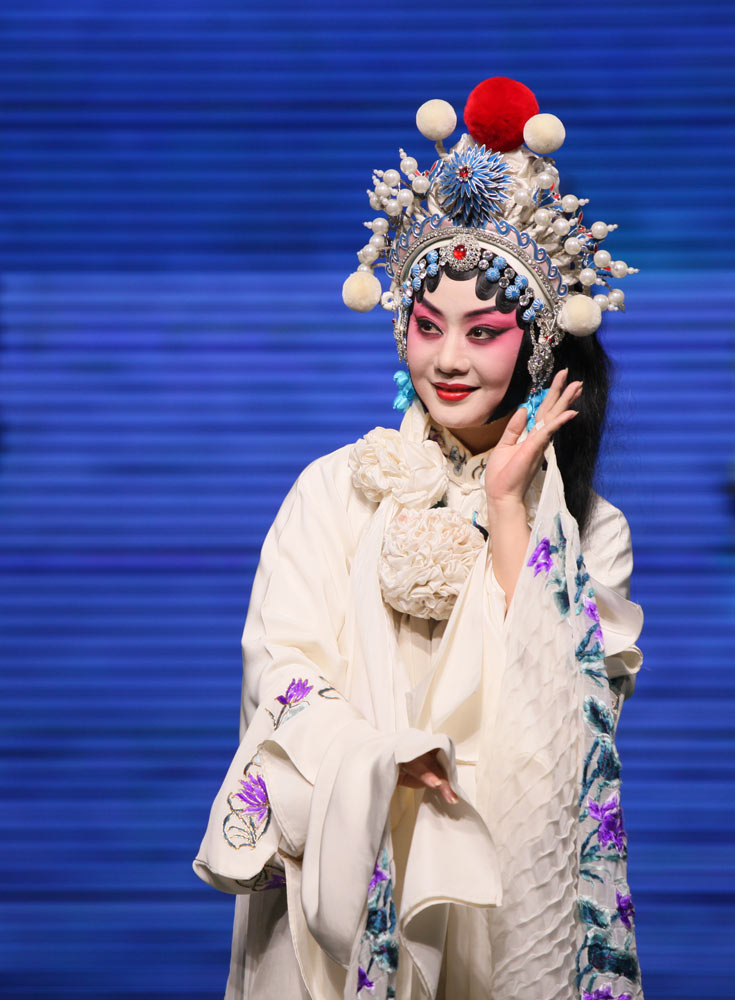
© China National Peking Opera Company. (Click image for larger version
Matched against Li Shengsu’s dignified heroism, the equally beautiful Dai Zhongyu was a fiery, disbelieving, Amazonian warrior as the Green Snake (or Xiao Qin, in human form). Both Li and Dai demonstrated incredible skills in kicking back the spears thrown at them by Fahai’s troops in a form of kick-juggling that I’ve never witnessed before, including returning multiple spears to the hands from whence they came by using both legs at the same time. It was a remarkable magic act, all on its own.
The General and the Prime Minister is another fable with a highly moral outcome, although this one is based on events that sit somewhere between history and legend, occurring during the “warring states” epoch of China (somewhere between 470 and 220 BC). The nation of Zhao has somehow managed to avoid being annexed by the more powerful Kingdom of Qin because of the political strategies of an official, called Lin Xiangru, and the military skill of General Lian Po. The problem is that the General is jealous of the official’s rapid rise to become PM. He tries to humiliate and belittle Lin at every opportunity but the politician always defers to him or turns away from confrontation. Eventually, the fearsome General is persuaded that Lin is not a coward but is refusing to allow any public dissent between the pair for the sake of the nation: humiliated by his own vanity, the General pleads for forgiveness and they become reconciled in their service for king and country.
The Chinese National Peking Opera Company again pulled out all the stops for this London performance of one of their iconic masterpieces with artistic director, Yu Kuizhi, portraying Lin Xiangru (the PM) and revered Jing (or painted-face) actor, Yang Chi, playing the General. They are perfectly matched. Yu presents a reserved, subtle interpretation of the political strategist who outwits the powerful King of Qin in his own “back yard”; and Yang – the President of the Dalian Peking Opera Company – is equally brilliant as the bombastic, proud General. His deep and powerful vocal control was thrilling. Together, these stars of two leading schools of Beijing Jingju, presented a compelling and highly entertaining production. They were well served in the supporting royal roles by Hu Bin and Liu Lei as the respective Kings of Qin and Zhao.

© China National Peking Opera Company. (Click image for larger version)
A small band of musicians occupied a cordoned-off area, downstage right. There are no credited composers in Jingju since the music is largely the same from piece-to-piece, its variety being determined by the spontaneous reactions of the musicians (led by the drummer) to the action on stage. Although the music – and the instrumentation – is different to anything in the west, one is able to quickly acclimatise to the sounds and their significance. Several percussive instruments are matched by something like a violin, played with a bow (Jing Erhu); something like a lute (Yueqin); and something like a recorder crossed with a trumpet (Suona); although the similarities are nothing more than passing visual references rather than anything to do with sound. One instrument – I’m guessing that it may be the Jinghu – sounds very much like bagpipes.
Two significant elements to Jingju, not yet mentioned, are the visual splendour of sets and – especially – costumes: rich reds; vibrant yellows; huge ostrich feathers; and sumptuous gold. I’m reliably told that every colour has a distinct meaning, in terms of status and significance. And, then there are the acrobats. The tumbling is of Olympic gymnast standard, perhaps even better than those floor exercises, in terms of variety and multiplicity of tumbles. Some diagonal sequences were jaw-dropping in their complexity and skill.
And, put together, over two very different performances – one highly comedic, the other, much more serious – all of this imagery, profound drama, great singing, hilarious comedy and so much more, is easily enough to justify my very first five star-rating of 2016. I doubt if I will see anything better than – and certainly nothing as unique as – these performances of Beijing Jingju before 2017. Please make it another Chinese New Year and come back with more.

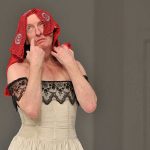
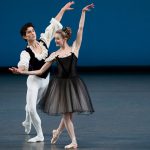
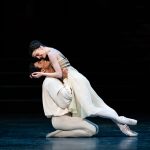
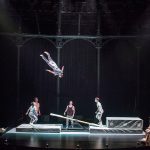

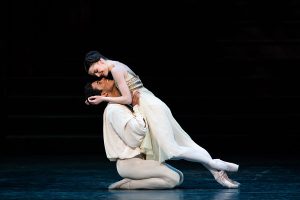
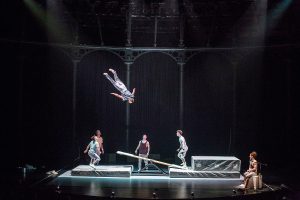
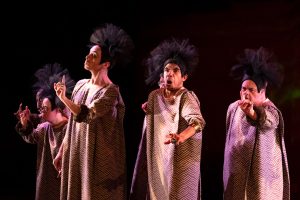
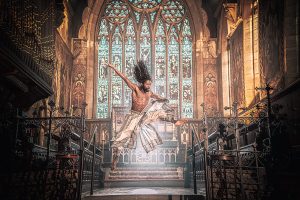
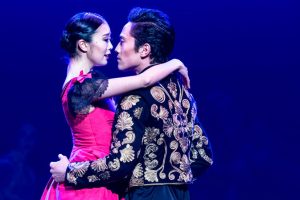
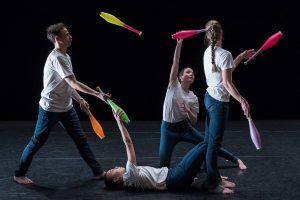


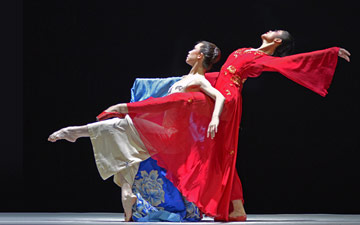
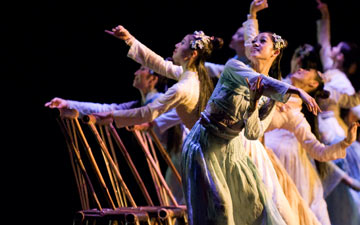
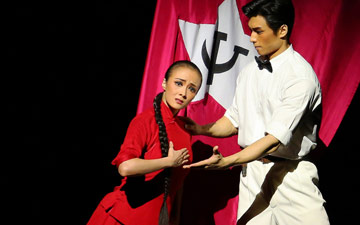
You must be logged in to post a comment.